10 Myths About Aging
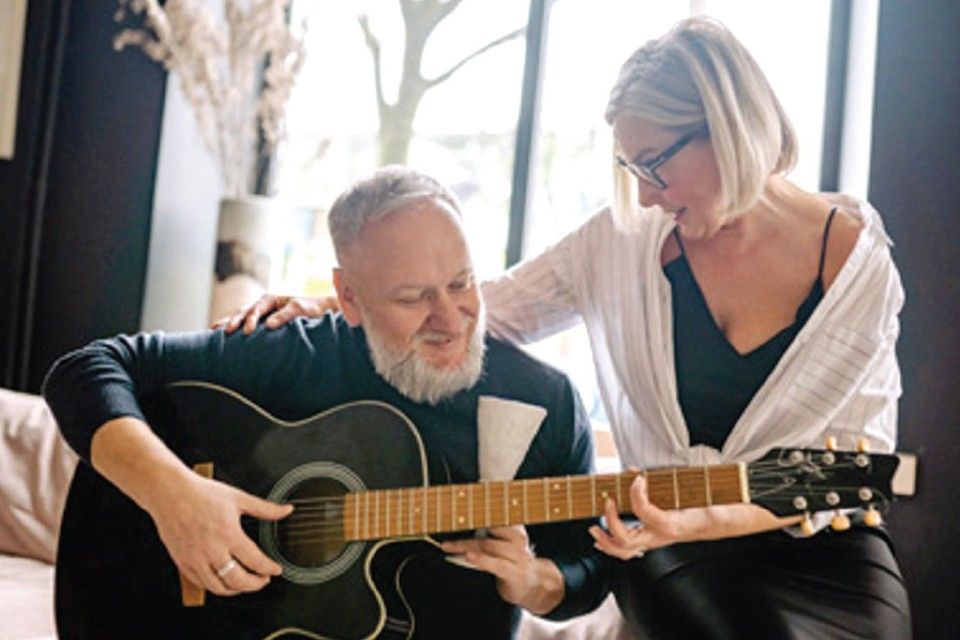
Advancements in technology, medicine and safety have played important roles in that lifespan gain. But so has healthspan.
As you experience aging with limb loss, you have power and control over what you choose to focus on. Coping with aging and limb loss is difficult, but don’t get stuck. Take an active role with your medical team and the other professionals in your life.
Many people make assumptions about aging and what it’s like to grow “old”. But as we get older, it is important to understand the positive aspects of aging. Research shows that you can help preserve your health and mobility as you age by adopting or continuing healthy habits and lifestyle choices.
Don’t fall into the trap of believing misconceptions about aging and older adults.
Many people make assumptions about aging and what it’s like to grow “old”. But as we get older, it is important to understand the positive aspects of aging. Research shows that you can help preserve your health and mobility as you age by adopting or continuing healthy habits and lifestyle choices.
Don’t fall into the trap of believing misconceptions about aging and older adults.
The past century has seen tremendous growth in the lifespan of most Canadians. We now expect to live about 25 years longer than our ancestors of 100 years ago.
1. Depression and loneliness are normal in older adults.
As people age, some find themselves feeling isolated and alone which can lead to feelings of depression, anxiety and sadness. But these feelings are not a normal part of aging. Growing older can have many emotional benefits, such as long-lasting relationships with friends and family and a lifetime of memories to share with loved ones. In fact, studies show that older adults are less likely to experience depression than young adults. Depression is a common and potentially serious mood disorder, but there are treatments that are effective for most people.
2. The older I get, the less sleep I need.
As we age, we may find ourselves having a harder time falling and staying asleep. A common misconception is that a person’s sleep needs decline with age. Older adults need the same amount of sleep as all adults — seven to nine hours each night. Getting enough sleep keeps you healthy and alert. Among many other benefits, adequate sleep can also help reduce your risk of falls and improve your overall mental well-being.
3. Older adults can’t learn new things.
Not true! Older adults still have the ability to learn new things, create new memories, and improve on a variety of skills. While aging often comes with changes in thinking, many cognitive changes are positive, such as having more knowledge and insight from a lifetime of experiences. Trying and learning new skills may even improve cognitive abilities. Studies have found that older adults who learned quilting or digital photography had improved memory. New social connections and engaging in social activities like a dance class or book club can boost your cognitive health too.
4. It is inevitable that older people will get dementia.
Although the risk of dementia grows as people get older, it is not inevitable. Many people live into their 90s and beyond without the declines in thinking and behaviour that characterize dementia. Occasionally forgetting an appointment or losing your keys are typical signs of mild forgetfulness, which is common in normal aging. Nevertheless, talk with a doctor if you have serious concerns about your memory and thinking, or notice changes in your behaviour and personality.
5. Older adults should avoid exercise so they don’t get injured.
As we age, some think exercise can do more harm than good, especially with a chronic condition. However, studies show that you have a lot more to gain by being active — and a lot to lose by sitting too much. Inactivity is often more to blame than age when older people lose the ability to do things on their own. Almost anyone, at any age and with most health conditions, can participate in some type of physical activity.
Physical activity can help manage some chronic conditions. Exercise and physical activity are not only great for your mental and physical health, but can help keep you independent as you age. For example, Tai Chi and other mind and body movement practices have shown to improve balance and stability in older adults and this can help maintain independence and prevent future falls.
As people age, some find themselves feeling isolated and alone which can lead to feelings of depression, anxiety and sadness. But these feelings are not a normal part of aging. Growing older can have many emotional benefits, such as long-lasting relationships with friends and family and a lifetime of memories to share with loved ones. In fact, studies show that older adults are less likely to experience depression than young adults. Depression is a common and potentially serious mood disorder, but there are treatments that are effective for most people.
2. The older I get, the less sleep I need.
As we age, we may find ourselves having a harder time falling and staying asleep. A common misconception is that a person’s sleep needs decline with age. Older adults need the same amount of sleep as all adults — seven to nine hours each night. Getting enough sleep keeps you healthy and alert. Among many other benefits, adequate sleep can also help reduce your risk of falls and improve your overall mental well-being.
3. Older adults can’t learn new things.
Not true! Older adults still have the ability to learn new things, create new memories, and improve on a variety of skills. While aging often comes with changes in thinking, many cognitive changes are positive, such as having more knowledge and insight from a lifetime of experiences. Trying and learning new skills may even improve cognitive abilities. Studies have found that older adults who learned quilting or digital photography had improved memory. New social connections and engaging in social activities like a dance class or book club can boost your cognitive health too.
4. It is inevitable that older people will get dementia.
Although the risk of dementia grows as people get older, it is not inevitable. Many people live into their 90s and beyond without the declines in thinking and behaviour that characterize dementia. Occasionally forgetting an appointment or losing your keys are typical signs of mild forgetfulness, which is common in normal aging. Nevertheless, talk with a doctor if you have serious concerns about your memory and thinking, or notice changes in your behaviour and personality.
5. Older adults should avoid exercise so they don’t get injured.
As we age, some think exercise can do more harm than good, especially with a chronic condition. However, studies show that you have a lot more to gain by being active — and a lot to lose by sitting too much. Inactivity is often more to blame than age when older people lose the ability to do things on their own. Almost anyone, at any age and with most health conditions, can participate in some type of physical activity.
Physical activity can help manage some chronic conditions. Exercise and physical activity are not only great for your mental and physical health, but can help keep you independent as you age. For example, Tai Chi and other mind and body movement practices have shown to improve balance and stability in older adults and this can help maintain independence and prevent future falls.

Healthspan is the period in life in which a person is reasonably healthy and free of chronic disease. It can be advanced by our own actions. Physical activity is a cornerstone of healthy aging, reducing the risk of developing some diseases and disabilities associated with aging.
6. A family member has Alzheimer’s disease, so I will have it too.
A person’s chance of having Alzheimer’s disease may be higher when there is a family history of dementia because there are some genes that are known to increase risk. However, having a parent with Alzheimer’s does not necessarily mean that someone will develop the disease.
Environmental and lifestyle factors, such as exercise, diet, exposure to pollutants, and smoking also may affect a person’s risk for Alzheimer’s. While you cannot control the genes you inherited, you can take steps to stay healthy as you age, such as getting regular exercise, controlling high blood pressure, and not smoking.
7. Now that I am older, I will have to give up driving.
As our population ages, the number of licensed older adults on the road will continue to increase. Natural changes can occur with age that may affect a person’s ability to drive, like having slower response speed, diminished vision or hearing, and reduced strength or mobility. The question of when it is time to limit or stop driving should not be about age. Rather, it should be about your ability to drive safely.
8. Only women need to worry about osteoporosis.
Although osteoporosis is more common in women, this disease still affects many men and could be underdiagnosed. Men may not be as likely to have osteoporosis because they start with more bone density than women. One in five men over the age of 50 will have an osteoporosis-related fracture. By age 65 or 70, men and women lose bone mass at the same rate.
Many of the things that put men at risk are the same for women, including family history, not enough calcium or vitamin D, and too little exercise. Low levels of testosterone, too much alcohol, taking certain drugs, and smoking are other risk factors.
9. I’m “too old” to quit smoking.
It doesn’t matter how old you are or how long you have been smoking, quitting at any time improves your health. Smokers who quit have fewer illnesses such as colds and the flu, lower rates of bronchitis and pneumonia, and an overall better feeling of well-being.
The benefits of quitting are almost immediate. Within a few hours, the carbon monoxide level in your blood begins to decline and, in a few weeks, circulation improves and lung function increases. Quitting can lead to a lowering of heart rate and blood pressure over time, and lower the risk of cancer, heart attack, stroke and lung disease.
10. My blood pressure has lowered or returned to normal, so I can stop taking my medication.
High blood pressure is a very common problem for older adults — especially those in their 80s and 90s — and can lead to serious health problems if not treated properly. If you take high blood pressure medicine and your blood pressure goes down, it means the medicine and any lifestyle changes you have made are working. It’s important to continue your treatment and activities long-term. If you stop taking your medicine, your blood pressure could rise again, increasing the risk for health problems like stroke and kidney disease. Talk with your doctor about possibilities for safely changing or stopping your medication.
A person’s chance of having Alzheimer’s disease may be higher when there is a family history of dementia because there are some genes that are known to increase risk. However, having a parent with Alzheimer’s does not necessarily mean that someone will develop the disease.
Environmental and lifestyle factors, such as exercise, diet, exposure to pollutants, and smoking also may affect a person’s risk for Alzheimer’s. While you cannot control the genes you inherited, you can take steps to stay healthy as you age, such as getting regular exercise, controlling high blood pressure, and not smoking.
7. Now that I am older, I will have to give up driving.
As our population ages, the number of licensed older adults on the road will continue to increase. Natural changes can occur with age that may affect a person’s ability to drive, like having slower response speed, diminished vision or hearing, and reduced strength or mobility. The question of when it is time to limit or stop driving should not be about age. Rather, it should be about your ability to drive safely.
8. Only women need to worry about osteoporosis.
Although osteoporosis is more common in women, this disease still affects many men and could be underdiagnosed. Men may not be as likely to have osteoporosis because they start with more bone density than women. One in five men over the age of 50 will have an osteoporosis-related fracture. By age 65 or 70, men and women lose bone mass at the same rate.
Many of the things that put men at risk are the same for women, including family history, not enough calcium or vitamin D, and too little exercise. Low levels of testosterone, too much alcohol, taking certain drugs, and smoking are other risk factors.
9. I’m “too old” to quit smoking.
It doesn’t matter how old you are or how long you have been smoking, quitting at any time improves your health. Smokers who quit have fewer illnesses such as colds and the flu, lower rates of bronchitis and pneumonia, and an overall better feeling of well-being.
The benefits of quitting are almost immediate. Within a few hours, the carbon monoxide level in your blood begins to decline and, in a few weeks, circulation improves and lung function increases. Quitting can lead to a lowering of heart rate and blood pressure over time, and lower the risk of cancer, heart attack, stroke and lung disease.
10. My blood pressure has lowered or returned to normal, so I can stop taking my medication.
High blood pressure is a very common problem for older adults — especially those in their 80s and 90s — and can lead to serious health problems if not treated properly. If you take high blood pressure medicine and your blood pressure goes down, it means the medicine and any lifestyle changes you have made are working. It’s important to continue your treatment and activities long-term. If you stop taking your medicine, your blood pressure could rise again, increasing the risk for health problems like stroke and kidney disease. Talk with your doctor about possibilities for safely changing or stopping your medication.



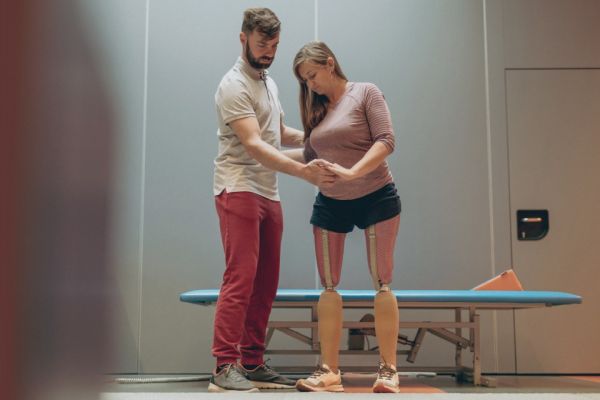



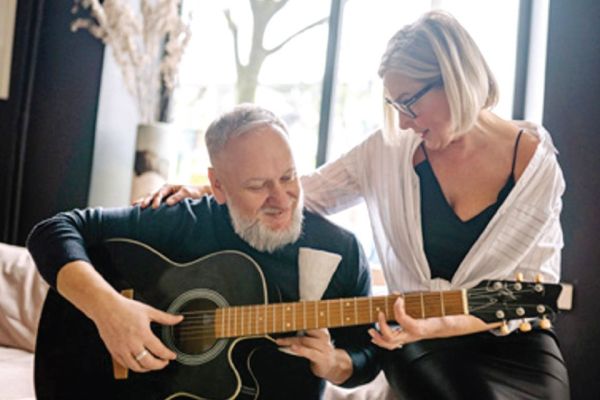

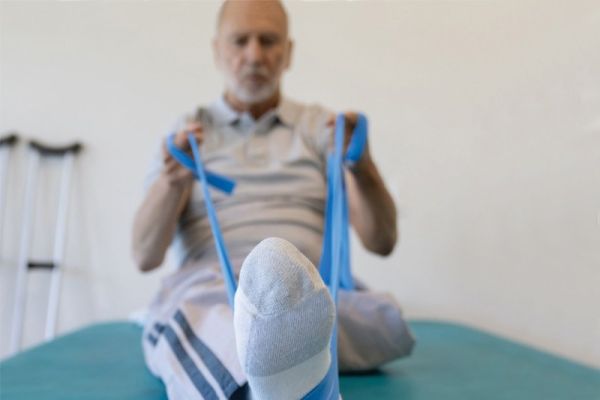
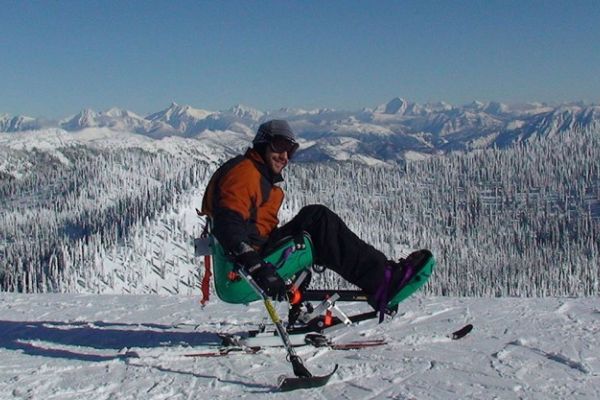
 How to resolve AdBlock issue?
How to resolve AdBlock issue?